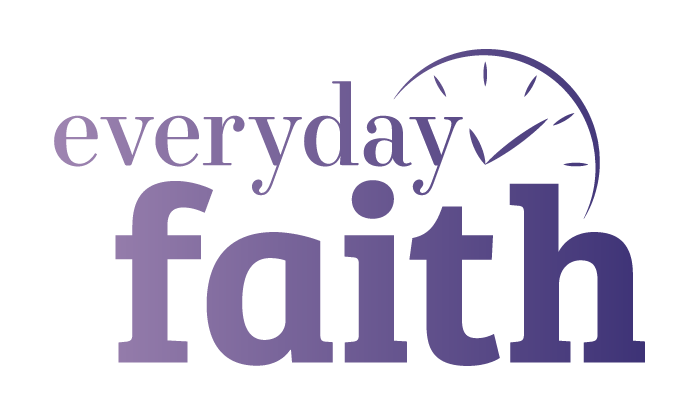
An everyday kingdom: What kind of disciples fit Jesus' vision of the Kingdom?
By Dr Paula Gooder
Discipleship
Although the word discipleship is commonly used today, I would argue that it is not particularly helpful, not least because it does not occur in this form in the Gospel. Discipleship is an abstract noun developed out of the noun ‘disciple’ to imply the state of being a disciple. The problem is that it removes the dynamism from the original term. Being a disciple (and what this entails) is much easier to describe than the abstract state of discipleship. As a result, I avoid using this term in what follows.
Disciples
The relationship between Jesus and his disciples refers primarily to learning. The words for disciple in Greek (mathetes) and Latin (discipulus), from which we get our word disciple, mean ‘a learner’. A disciple relates to their Rabbi as someone who learns from their teacher. Whilst this relationship finds its roots in the Old Testament, in the New Testament it is only found in the Gospels and Acts.
Family
The description of those who follow Jesus as a family is an important one that straddles both the Gospels and the epistles. Here we find God described as Father to His son Jesus – a relationship that is then extended to all those who follow Jesus, so that Paul’s primary mode of address to fellow believers is ‘brothers and sisters’.
Kingdom
A third depiction of the relationship describes God as the king and His followers as citizens of His Kingdom. The first two metaphors focus primarily on the nature of the relationship, whereas this metaphor envisions more how the world could be if it were ruled by God as God always intended. It then begs the question of how citizens of God’s Kingdom might be expected to behave and what kind of qualities we might expect to see in those who wish to live by God’s rule.
The New Testament presents us with multiple metaphors of belonging; metaphors which reveal a vision of what it is like to live as a follower of Jesus or to be a member of the body of Christ. In fact, the metaphors are so varied and so embedded in our consciousness that it is hard to talk of belonging at all without regularly switching between them. Being a disciple is, arguably, the most important of these metaphors. It describes the relationship between Jesus and his first followers and is what he told his followers to replicate throughout the world (‘Go, therefore, and make disciples of all nations’, Matthew 28:19). But the other metaphors are also significant and help to fill out a picture of what this belonging means to how we live.
There are many metaphors of belonging in the New Testament – such as being a member of the body of Christ, or dying and rising with Christ through baptism – but the three most common ones are disciples, family and kingdom.
One of the striking features of the Kingdom of God, or Heaven, is that Jesus most talked about it obliquely, rather than directly. Rather than saying, ‘In the Kingdom of God you will find…’, he said instead, ‘The Kingdom of God is like…’ and then continued with a parable. This requires us to reflect more deeply on what we are being told about life within the Kingdom.

Parables
One of the most notable features of the kingdom parables is that they involve everyday situations and ordinary artefacts – or at least they did when Jesus first told them. A challenge for modern readers is that Jesus chose very familiar scenarios to his audience to enable them to think about what the Kingdom was like. He told stories of sowers going out to throw seed on the ground, or of women getting up to make bread in the morning. He described the act of fishing, or how people kept money safe. The problem today is that these are no longer everyday scenarios and it takes us, as modern readers, a while to understand the impact of the stories that Jesus told.
Another problem is even more complex. Parables were surprising – sometimes even shocking. They were meant to be. When Jesus first told them, it is likely that people would have struggled to understand what he meant… the Kingdom is like yeast, a net full of fish, seed that is sown on the ground. All of these would have taken work to understand.
Our problem is we are so used to them that they no longer cause us surprise. ‘Yes’, we say when we hear them read, ‘it is obvious that the Kingdom is like a pearl.’ The challenge, then, for reflecting on the parables today is to make the images Jesus uses both more familiar (so that we understand the ordinary, everyday-ness of the images used) and less familiar (so we can be surprised again at how Jesus could possibly say that the Kingdom is like a mustard seed, yeast or treasure buried in a field).
In what follows I shall briefly explore these three parables: the parable of the mustard seed, yeast and treasure in a field; and I will attempt both to familiarise and defamiliarise them in order to help us reflect on what kind of citizens/disciples might be needed for such a kingdom.

The Parable of the Mustard Seed
He put before them another parable: “The Kingdom of Heaven is like a mustard seed that someone took and sowed in his field; it is the smallest of all the seeds, but when it has grown it is the greatest of shrubs and becomes a tree, so that the birds of the air come and make nests in its branches.”
Matthew 13:31-32
The parable of the mustard seed appears at first glance to be domestic and unchallenging. Many of us are familiar with mustard seeds (though they are hardly the smallest of all seeds) and have grown them, along with cress, in an eggshell or other receptacle as children. The mustard seed referred to by Jesus is not one of those mustard seeds.
Pliny the Elder (a Roman naturalist), referring to mustard, said it was ‘extremely beneficial for the health. It grows entirely wild, though it is improved by being transplanted; but on the other hand, when it has once been sown it is scarcely possible to get the place free of it, as the seed when it falls germinates at once.’
In other words, if what Pliny is talking about here is the same as what Jesus is referring to, he is not conjuring up a pleasant domestic image but a challenging unsettling one. The mustard seed would have been sown by accident, buried among the far bigger grains of wheat; yet once planted, it would spring up and grow to the size of a small tree. Once planted, no matter how accidentally, it could never be eradicated and would attract the very last thing that a farmer would want in a carefully planted field of wheat: birds.
It is possible that rather than presenting a gentle pastoral image, this parable suggests something subversive and far less welcome – the Kingdom of Heaven is like a pernicious weed that once planted, cannot be rooted. It grows and grows until it is so big that those least wanted in our neat, well-planned fields find a home and rest there.
If this is what Jesus was saying, then those who are citizens of a kingdom such as this would need to prepare themselves for disruption and subversion, and would need to be ready to welcome those who might normally be least welcome in other areas of life. On the other hand, they might like to be reminded that this ‘weed’, once planted, can never be eradicated.

The Parable of the Yeast
He told them another parable: “The Kingdom of Heaven is like yeast that a woman took and mixed in with three measures of flour until all of it was leavened.”
Matthew 13:33
In Matthew’s Gospel the parable of the mustard seed is followed immediately by the parable of the yeast. Just like the parable that precedes it, this parable presents an unsettling image of the Kingdom, though at first glance it is a gentle, domestic image.
The unsettling element of this parable lies in the yeast. Yeast – or, as it is sometimes called, leaven – often had a negative connotation in the Bible. It was banned from bread eaten at the Passover (Exodus 12:34-39) and could not be included in bread offered on the altar in sacrifice (Leviticus 2:11).
Jesus also referred to the ‘leaven’ of the Pharisees (Matthew 16:6) as a warning against evil and corruption. There are various theories about why leaven was regarded so negatively but one possibility is its tendency to spread and spread (a modern analogy might be cancer cells).
It should be noted that leaven wasn’t always cited negatively, but it is often used as a by-word for the way evil and corruption spreads.
In this parable the woman was making a vast quantity of bread – three measures of flour would feed around 100 people. The importance, then, of the Kingdom being like yeast was that it could spread as rapidly and effectively as evil and corruption, and from small origins can have a massive effect.
Those who are citizens of this kind of kingdom should have confidence that the Kingdom will spread as quickly and as rapidly as evil does. They should, like the woman who baked bread enough for a feast, have confidence to mix the yeast of the Kingdom in places which seem impervious to the Kingdom’s values.

The Parable of Treasure Hidden in a Field
“The Kingdom of Heaven is like treasure hidden in a field, which a man found and covered up. Then in his joy he goes and sells all that he has and buys that field.”
Matthew 13:44
It is hard to see this parable as anything but troubling. The man in the parable is profoundly dishonest. Burying treasure in the ground was how many everyday people kept their treasure safe – if they were unable to afford strong boxes and strong servants to guard them. An example of this practice can be seen in the parable of the talents, where the third servant took the money and buried it in the ground until the return of the absentee landlord. The reason for the anger of the landlord against the servant who buried the treasure was, presumably, because someone could have found it as happened in this parable. In other words, the person who found treasure buried in a field was dishonest, buying the field whilst pretending he had not found the treasure in it – so great was his passion to acquire the treasure.
The Kingdom, therefore, according to this parable, is like treasure belonging to someone else that you stumble upon and then do everything in your power to get hold of. Citizens of this kind of kingdom have a deep and overwhelming passion for the Kingdom (the kind you might have if you found a hoard of valuable treasure) and will do everything in their power to ensure they have access to it.
Concluding Reflections
The kingdom Jesus depicts in his parables is an everyday kingdom – a kingdom best described by ordinary, everyday pastimes like farming and cooking. The Kingdom of God turns notions of kings and power and rulers on their head. It is ‘like’ the ordinary things of life. It is not only subversive because it turns the notions of king and kingdom on their head, it is subversive because, like a pernicious weed, it grows and grows and can’t be contained; it attracts the birds who will disrupt the neat order of a planned field of wheat. It is also subversive because, like yeast, it spreads to affect everything around it.
The question these parables of the Kingdom pose for us is what kind of citizens/disciples such a kingdom requires? What characteristics might they have? As we think more deeply about ‘everyday disciples’, an ‘everyday kingdom’ suggests they should feel very much at home in God’s Kingdom, so long as they are prepared for disruption and subversion along the way.







